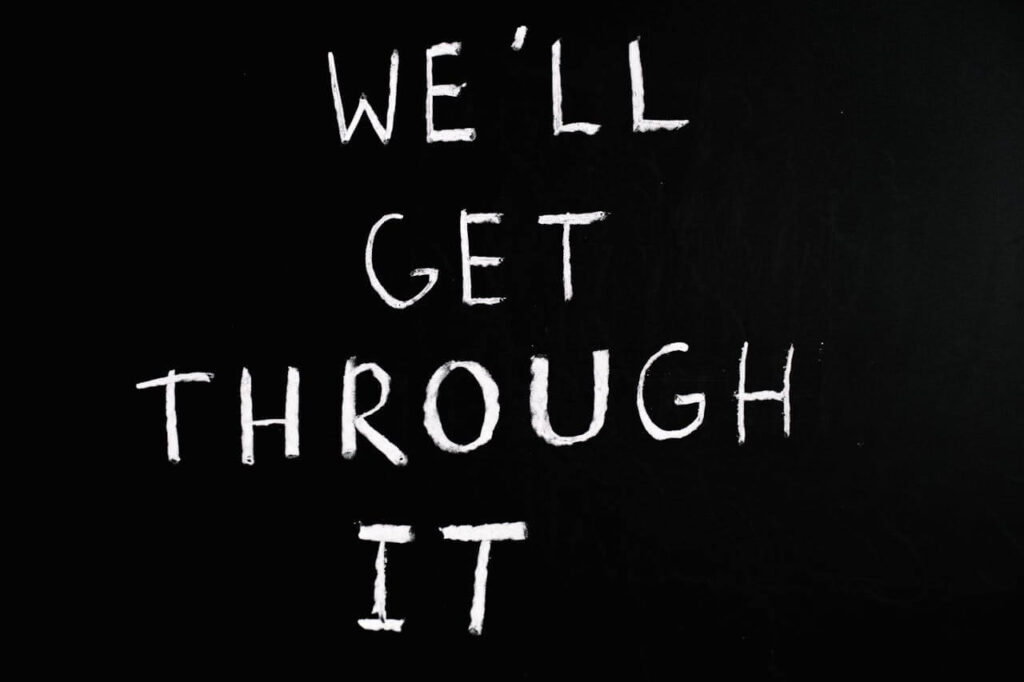
In life, tough times are inevitable. Whether it’s facing personal loss, navigating career setbacks, or simply dealing with the constant pressure of modern life, challenges will come. The question is not if you will face hardship, but how you will respond. Building mental resilience, the ability to adapt, recover and thrive despite adversity is one of the most important life skills you can develop.
Mental resilience is not about avoiding pain or struggle. Rather, it’s about cultivating the mindset and strategies that allow you to face difficult times with strength, clarity and purpose. It’s about learning how to bounce back and use challenges as stepping stones for growth.
1. Shift Your Mindset: See Challenges as Opportunities
The foundation of mental resilience begins with mindset. How you perceive a challenge will determine how you respond to it. A growth mindset—the belief that your abilities and intelligence can be developed through effort and learning is key to building resilience.
Consider this: In a study on resilience, psychologist Carol Dweck found that individuals with a growth mindset are more likely to view setbacks as opportunities for learning rather than as permanent failures. This mindset allows you to see adversity as a natural part of the growth process, not as something that defines you.
In difficult moments, ask yourself: What can I learn from this experience? Reframe setbacks as opportunities to strengthen your resolve, build new skills or gain new perspectives. Adopting this mindset can help you navigate challenges with greater confidence and adaptability.
2. Focus on What You Can Control
It’s easy to become overwhelmed when things feel out of your control. However, mental resilience grows when you learn to focus on the aspects of a situation that you can influence.
In any tough situation, ask yourself: What part of this can I control? Whether it’s how you manage your time, your emotional reactions or your approach to problem-solving. Shifting your focus to what you can control helps you feel more empowered and less overwhelmed.
3. Cultivate Emotional Awareness: Know Your Limits
Mental resilience doesn’t mean suppressing emotions or pretending everything is fine when it’s not. In fact, being emotionally aware and acknowledging your feelings is an essential part of building resilience.
When you experience stress, it’s important to understand why you feel the way you do. Emotional intelligence—the ability to recognize, understand, and manage your emotions—plays a pivotal role in resilience. When you understand your emotional triggers, you can make conscious choices about how to react and how to manage stress.
Being aware of your emotional limits doesn’t make you weak; it makes you human. Resilience comes not from denying your feelings but from learning to respond to them in healthy, constructive ways.
4. Practice Self-Compassion: Treat Yourself Like a Friend
Many of us are quick to criticize ourselves when we struggle. But self-compassion and treating yourself with the same kindness and understanding that you would offer a friend is a crucial component of mental resilience.
Research has shown that people who practice self-compassion are better able to cope with stress, anxiety, and failure. Rather than berating yourself for mistakes, practice speaking to yourself with care. Recognize that everyone faces setbacks, and it’s a part of the human experience.
Remember: Resilience isn’t about being tough on yourself; it’s about being kind to yourself, especially when things are hard. Be your own biggest supporter.
5. Build a Routine of Self-Care: You Can’t Pour From an Empty Cup
Taking care of your body, mind and spirit is foundational for resilience. Physical well-being directly influences mental health, and without proper self-care, it becomes increasingly difficult to face challenges effectively.
Exercise, good nutrition, and adequate sleep all play significant roles in maintaining the energy levels and mental clarity needed to persevere through tough times. Taking care of your physical health isn’t indulgence—it’s essential for your mental resilience.
6. Build a Support Network: You Don’t Have to Do It Alone
While resilience is often about personal strength, no one is an island. The most resilient people know when to seek help and lean on their support networks during tough times.
Studies show that having a strong social network can buffer the effects of stress and reduce the risk of mental health issues like depression and anxiety. Reaching out to friends, family, or colleagues when things get tough can provide much-needed perspective and emotional support.
If you’re going through a hard time, don’t isolate yourself. Lean on your people—and don’t hesitate to seek professional help when needed. You don’t have to face challenges alone.
7. Celebrate Small Wins: Build Momentum Through Progress
When you’re facing a big challenge, it’s easy to focus solely on the end goal. But resilience is built by recognizing and celebrating the small victories along the way.
Every time you take a positive step forward, whether it’s completing a task, learning something new or simply getting through the day, you build momentum. Celebrating these small wins boosts confidence and reinforces the belief that you’re moving in the right direction.
Start a habit of reflecting on your day and acknowledging what you’ve accomplished, no matter how small it seems. Over time, these little moments of recognition add up to significant growth.
Conclusion: Resilience is a Journey, Not a Destination
Building mental resilience takes time, effort, and patience—but it is one of the most empowering skills you can develop. It’s about shifting your mindset, focusing on what you can control, embracing your emotions, and taking care of your physical and emotional health.
Life’s challenges are not just obstacles—they are opportunities to grow, learn and become stronger. Resilience is not about never falling down; it’s about how quickly you get back up and how much you grow in the process.
As you move through life, remember: you have the strength to overcome whatever challenges come your way. Stay grounded, stay compassionate and keep building resilience—one step at a time. You’ve got this.